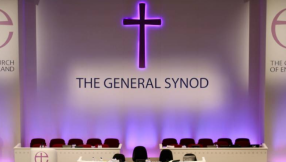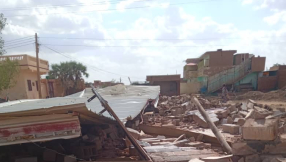Cardinals Enter Period of Silence & Prayer before Conclave
In about one week, the College of Cardinals will attend the conclave, from which the successor to John Paul II will be elected. To maintain the high secrecy of the election, starting from yesterday, the Cardinals have entered "an intense period of silence and prayer", saying they will stop speaking publicly.
"The cardinals, after the funeral Mass of the Holy Father, began a more intense period of silence and prayer, in view of the conclave," Vatican spokesman Joaquin Navarro-Valls said. "They unanimously decided to avoid interviews and encounters with the media."
Navarro-Valls called the media ban an "act of responsibility". He asked journalists not to ask the cardinals for interviews and said they should not take the cardinals’ silence as an act of "discourtesy."
The cardinals who celebrated Sunday Masses yesterday around Rome confined their remarks to tightly scripted homilies, since they have pledged the silence.
Cardinal Camillo Ruini, the late pope's vicar for Rome, on the daily mass celebrated in the late afternoon for mourning of the pontiff at St. Peter's said, "let us not be uselessly and too humanly curious to know ahead of time who he will be."
"Let us instead prepare to receive in prayer, trust and love he whom the Lord chooses to give us," Cardinal Ruini said.
Currently, 115 cardinals under the age of 80 will participate in the conclave set on 18th April. It has been reduced from the origincal number of 117 because Cardinal Jaime L. Sin of the Philippines and Cardinal Alfonso Antonio Suarez Rivera of Mexico are too sick to attend.
In fact, as the Vatican has tried to keep the election in high secrecy, the temptation to spies will be even more intense. Hackers and government informants will be monitoring the conclave even though the Vatican security refused to discuss the details of any anti-bugging measures to be used.
Spying has gotten a lot more sophisticated since John Paul was elected in 1978. The late Pope was so sensitive to spying that he had laid down rules that those who break their oaths of secrecy can be cast out of the Roman Catholic Church. In order to protect cardinals from "threats to their independence of judgment", in 1996, the late Pope banned all cell phones, electronic organisers, radios, newspapers, TVs and recorders in the conclave.













